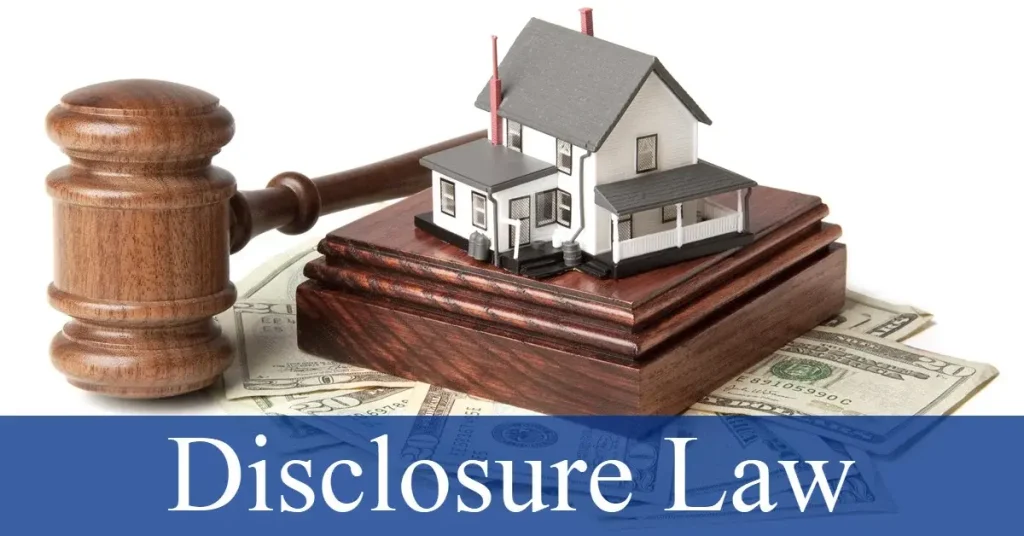The real estate industry is entering a new era in 2025, with sweeping changes that affect everything from commission structures to how properties are marketed and sold. Whether you’re a first-time buyer, seasoned investor, or a licensed agent, understanding these new real estate rules is essential. This guide breaks down the latest updates, their implications, and how you can stay ahead of the curve in today’s evolving property landscape.

Content
1. Real Estate Commission Changes: Breaking Down the Shift
One of the most impactful changes this year is the update to real estate commission changes. Previously, seller agents typically shared their commission with buyer agents, creating a somewhat opaque system. In 2025, greater transparency is required.

Now, buyers may need to negotiate commission fees directly with their agents, which could change buyer behavior and influence which agents they choose. This shift promotes fairer competition and empowers consumers to understand what they’re paying for.
2. Buying a Home in 2025: What’s Different Now
The process of buying a home in 2025 looks different compared to previous years. The market is adjusting to a blend of higher interest rates, stricter lending criteria, and new government incentives for first-time buyers.
A key update includes stricter appraisal guidelines and mortgage documentation. Buyers are encouraged to be financially pre-qualified before viewing homes, and sellers are advised to price competitively to stay attractive in a market influenced by new real estate rules.
3. Property Disclosure Laws: More Transparency Required
In response to past legal disputes and growing consumer protection concerns, property disclosure laws have tightened. Sellers are now legally obligated to provide detailed disclosures about a property’s history, including prior repairs, flood risks, mold, and environmental hazards.

This benefits buyers who need accurate data to make informed decisions. Ignoring property laws can lead to legal penalties, so both agents and sellers must stay compliant.
4. Real Estate Ethics and Standards: A Renewed Focus
The spotlight on real estate ethics and standards is brighter than ever. Regulatory bodies have updated their codes of conduct, focusing on integrity, accountability, and consumer-first practices.
Agents must now complete ongoing ethics training and are held to higher accountability regarding client representation, fee disclosures, and dual agency scenarios. These new real estate rules aim to rebuild trust and ensure a fair experience for all parties.
5. Virtual Home Tours: A Standard Practice
Accelerated by the pandemic and now solidified by technological advancement, virtual home tours are no longer a bonus—they’re the standard. In 2025, agents are expected to provide high-quality virtual walkthroughs using 3D imaging, video conferencing, and drone footage.
This innovation increases accessibility for remote buyers and speeds up decision-making. Expect more listings to feature virtual home tours as part of their core marketing strategy.
6. Eco-Friendly Homes: Regulations and Buyer Demand
New government regulations around energy efficiency have made eco-friendly homes more than just a trend—they’re a requirement. Building codes now mandate improved insulation, solar readiness, and water-saving fixtures for new constructions.

Buyers are increasingly searching for homes with green certifications and smart technology integrations. The rise in eco-friendly homes is transforming how properties are evaluated and marketed.
7. Real Estate Crowdfunding: Modern Investing Rules
Another notable shift comes in the area of real estate crowdfunding. The Securities and Exchange Commission (SEC) has relaxed certain regulations, making it easier for small investors to pool funds and invest in larger projects.
Platforms must now follow stricter transparency protocols, but they offer an exciting entry point for non-traditional investors. These new real estate rules open doors to opportunities that were previously limited to high-net-worth individuals.
8. Fair Housing Act Compliance: Stricter Oversight
Compliance with the Fair Housing Act is under stricter enforcement in 2025. Agencies are cracking down on discriminatory language in listings, biased lending practices, and unequal treatment during the home buying process.
Agents must complete mandatory training and submit marketing materials for audit. Embracing fair housing act compliance not only avoids penalties but also fosters inclusive communities.
9. Real Estate Licensing Requirements: Tougher Standards
Becoming a real estate professional is now more challenging due to enhanced real estate licensing requirements. Candidates must undergo additional coursework, pass ethics examinations, and complete supervised fieldwork.

These updated licensing requirements aim to ensure agents are knowledgeable, ethical, and well-prepared for the complexity of today’s market. The goal is to raise the industry standard and improve consumer experience.
10. PropTech Trends: The Future is Now
The intersection of technology and real estate, or prop tech, is leading the way in 2024. Artificial intelligence is being used to predict market trends, blockchain is being implemented for secure transactions, and smart contracts are reducing paperwork.
Understanding prop tech trends is essential for buyers and agents who want to stay competitive. From AI-driven home valuations to automated chatbots, these tools are reshaping the real estate journey.
Conclusion: Embrace the Change, Elevate the Experience
The new real estate rules of 2025 are more than just regulatory changes—they represent a shift in how the industry operates. Whether it’s embracing virtual home tours, adapting to real estate commission changes, or ensuring fair housing act compliance, these updates aim to create a more transparent, efficient, and inclusive market.
For buyers, these changes mean more control and protection. For sellers, new tools and transparency build stronger trust with prospects. And for agents, adapting to enhanced real estate ethics and standards and licensing requirements can redefine your value proposition in the marketplace.
FAQs
What are the new real estate rules in 2025?
The 2025 rules include changes to commission structures, stricter disclosure laws, new licensing standards, and enhanced ethical and tech requirements.
How do the new real estate commission changes affect buyers?
Buyers may now negotiate agent commissions directly, gaining more transparency but also bearing more responsibility during transactions.

With a passion for matching clients with their dream homes, Mary’s experience and knowledge of the real estate market make her a trusted advisor. She’s your go-to expert for buying or selling properties in the heart of the city.





